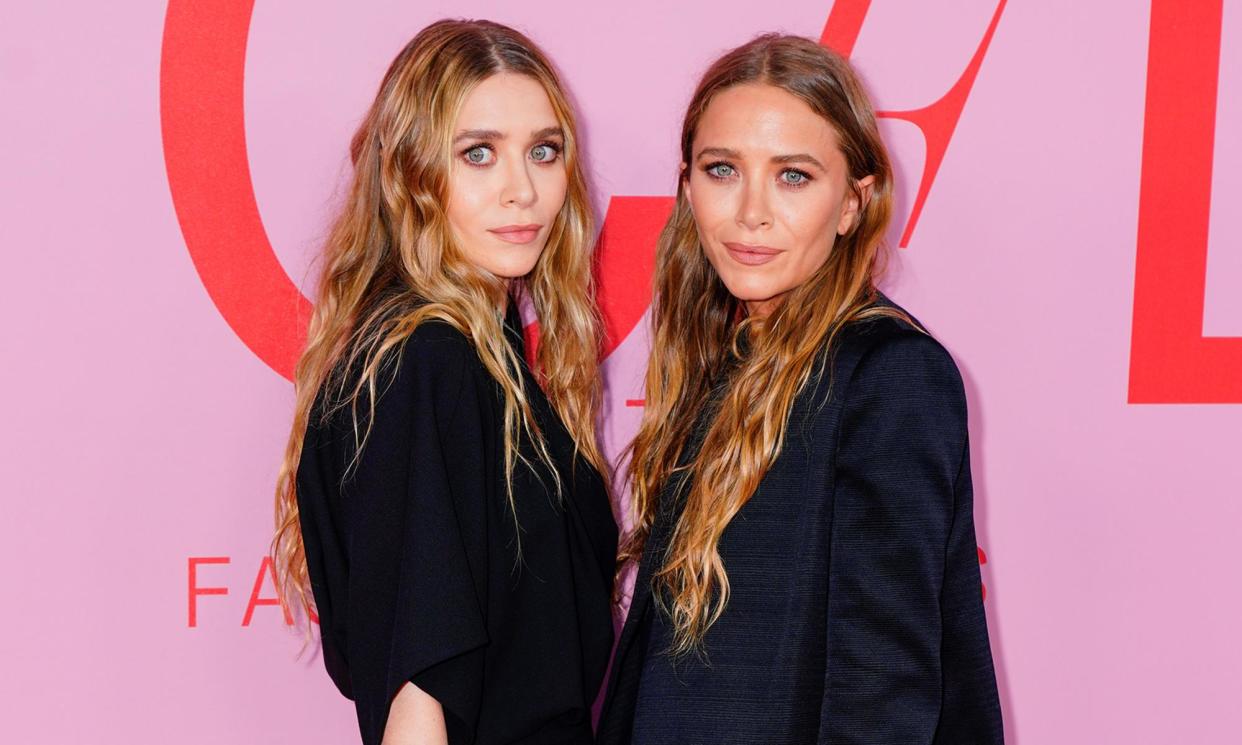‘No pictures, please’: What the Olsen twins’ social media blackout says about privacy

The bi-annual Paris fashion week show by The Row, the hyper-elegant and expensive brand from the Olsen twins, is social media catnip. In the past, Instagram and TikTok would usually be saturated with content from an event that lasts about five minutes – from images of The Row’s enigmatic founders Mary-Kate and Ashley taking their post-show bow to fancy favours served to guests (think fresh figs on silver platters).
However, in an unexpected plot twist last Wednesday, prior to the show guests were sent a missive: “We kindly ask that you refrain from capturing or sharing any content during your experience,” it read. Naturally, many used social media to share the message.
Reactions to the phone ban varied. Some saw it as snobbery; others a clever, if elitist, marketing ploy. Maybe it’s not that deep. Perhaps the Olsen twins, like Bob Dylan, who banned phones from his 2022 UK and Europe tour, thought it might be nice for guests to watch the show screen-free. “Our eyes open a little more and our senses are slightly sharper when we lose the technological crutch we’ve grown accustomed to,” said Dylan at the time.
Social media has, to some extent, democratised fashion week. It gives online fans an access-all-areas pass, not just a front row view. From the unboxing of elaborate invitations to backstage interviews, anyone with a phone can join in. However, The Row sells cotton T-shirts that cost £330 and cashmere coats for £13,000. It’s a brand built on exclusivity – not being given instant access seems fitting.
The Olsens are notoriously private individuals. They rarely give interviews and neither has a personal Instagram account. The Row’s dedicated Instagram account posts sporadically and mainly images of artworks to inspire rather than products to promote. As a private business, The Row doesn’t disclose financial information but its annual revenues are estimated to be between $250m and $300m. It clearly doesn’t need to have a strict social media strategy to stimulate sales.
This move towards increased privacy is a bubbling trend, seen everywhere from restaurants to celebrities to weddings. One of New York’s hottest new restaurants, the Frog Club, gives diners a sticker to place over their phone’s camera lens on arrival. Photos of the sticker are a brag in itself. Last year, a video of current Oscars frontrunner Cillian Murphy went viral when he explained he didn’t know what a meme was. The Oppenheimer star still reportedly doesn’t own a mobile phone. Meanwhile, an increasing number of weddings are subject to rules about no social media, with many couples opting for an “unplugged” ceremony. In fashion, meanwhile, we’ve become accustomed to watching catwalk stunts that are designed to go viral – see Coperni’s robots and Schiaparelli’s faux animal heads.
So is privacy is a new type of currency? Just like a back door entrance to a restaurant means VIPs can dine out discreetly, maybe being wealthy enough to buy a £10,000 coat without boasting about it online is the real power move. It makes sense that the brands selling such clothes are going to be the first to go dark because, if anything, being offline is a new luxury.
In a world where everyone vies for attention online, some for monetary reasons, some for ego, many for both, the ultimate signifier in 2024 is signing out.
To read the complete version of this newsletter – complete with this week’s trending topics in The Measure and your wardrobe dilemmas solved – subscribe to receive Fashion Statement in your inbox every Thursday.


